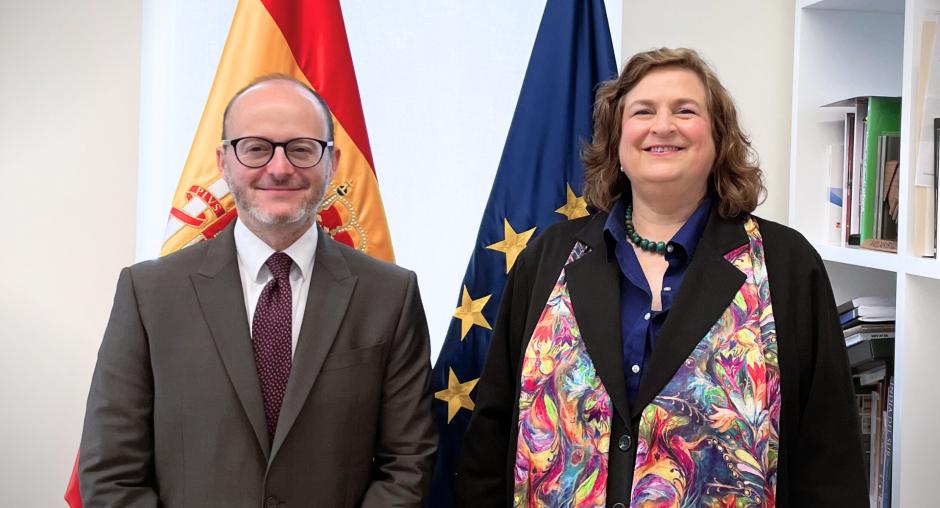OSCE welcomes Spain’s anti-trafficking efforts, urges a comprehensive law and better victim identification and protection

Kari Johnstone, OSCE Special Representative and Co-ordinator for Combating Trafficking in Human Beings, and OSCE anti-trafficking experts concluded their four-day visit to Madrid on Friday, February 14.
“We are encouraged by the candid, constructive discussions we had with a wide variety of stakeholders to see their strong commitment to combating human trafficking in Spain and partnering with the OSCE to enhance results across the region,” Special Representative Johnstone noted.
Special Representative Johnstone commended the efforts of Spanish law enforcement to detect and investigate human trafficking, including online and with specialized units in the National Police and the Civil Guard and specialized prosecutors and judges. She also praised Spain’s proactive co-operation with other countries and the active role of the National Anti-Trafficking Rapporteur in data collection and analysis, commending also the cross-sectoral co-ordination of Spain’s anti-trafficking efforts. She welcomed the planned creation of specialized tribunals for all crimes against children and ongoing implementation of a holistic, child-centered approach to handling cases of child trafficking, highlighting the importance of child-friendly justice.
The OSCE Special Representative encouraged authorities to develop a new National Anti-Trafficking Action Plan (NAP) with survivors’ input and adopt a comprehensive anti-trafficking law aligned with Spain’s international commitments. She praised the “accreditation” of trafficking victims by NGOs and recommended introducing a formal National Referral Mechanism (NRM) following the “social path” approach. This would allow for more effective victim identification beyond law enforcement and comprehensive assistance for all victims, independent of their co-operation with criminal justice processes. She offered her Office’s support in reviewing the draft law and assisting with a new NAP and NRM.
Special Representative Johnstone encouraged authorities to enhance measures against all forms of trafficking, including for labour exploitation and forced criminality, through proactively identifying and assisting victims and investigating and prosecuting cases. While she welcomed Spain’s priority on tacking child trafficking for sexual exploitation through recent adoption of laws, Special Representative Johnstone noted low identification of child victims, and encouraged increased attention to child trafficking risks and proactive identification of minor victims across all forms of trafficking. These include online child sexual exploitation and forced criminality, with special focus on children in institutional care and unaccompanied boys and girls.
Recognizing the challenges posed by the mass arrivals of migrants to Spain’s coast, Special Representative Johnstone encouraged authorities to continue proactively screening migrants and asylum seekers for trafficking indicators as Spain fulfills its international legal obligations to identify trafficking victims and ensure protection for any potential victims among this highly vulnerable population. The Special Representative lauded Spanish legislation’s explicit inclusion of the non-punishment principle for crimes committed as a direct result of being trafficked. She urged robust measures to increase its implementation in practice, notably through proactive identification and protection of victims and guidance for all officials in the criminal justice process.
During her visit, Special Representative Johnstone and her team met with various government officials, including the National Anti-Trafficking Rapporteur, the Prosecutor General, judges, and representatives from multiple ministries and departments, as well as civil society.
The OSCE Special Representative and Co-ordinator for Combating Trafficking in Human Beings conducts multiple country visits annually to help increase OSCE participating States' capacity to address human trafficking, identify promising practices, and share recommendations for further action. A detailed report of her visit findings will be released in the second half of 2025.
